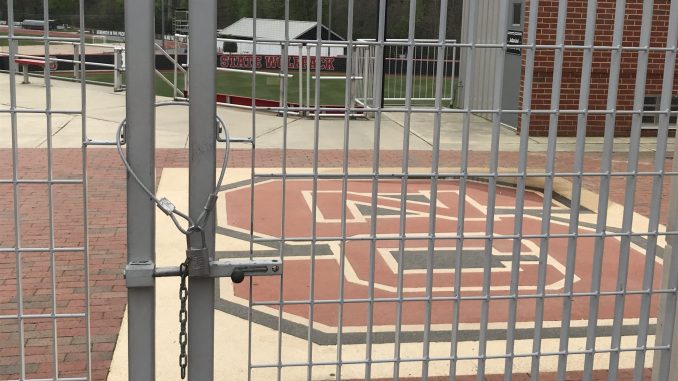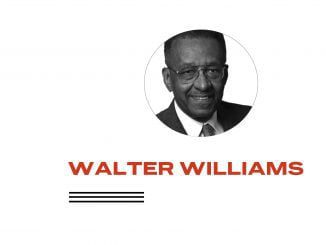
The sports department at newspapers across the country, regardless of size and location, is often referred to as the “Toy Store.”
It’s an accurate description considering that the events we cover are of far less social significance than those encountered by our colleagues on the news side.
There are no wars. No famines. Very few actual life-or-death decisions. And what conflict there is to write about is usually settled on the field of competition and almost always ends with a handshake.
 That’s why we love sports so much. At their most basic level, the games we watch and play provide at least a momentary distraction from the real-life pressures we face on a daily basis.
That’s why we love sports so much. At their most basic level, the games we watch and play provide at least a momentary distraction from the real-life pressures we face on a daily basis.
We rarely realize that, of course, until the games get taken away, as they have been over the past two weeks because of the coronavirus pandemic.
The suspension or cancellation of all sports events in America, including the NCAA men’s basketball tournament and the start of the Major League Baseball season, is what makes the current situation unlike any other we have faced in recent memory.
It’s already frightening enough with an unseen illness floating in the air around us, businesses closing and people losing their jobs at an alarming rate. But bunkering down in our homes hoarding our last few rolls of Charmin becomes even more depressing when instead of ball scores and tournament brackets, the only statistics available to us are those documenting the increasing number of COVID-19 cases worldwide and the deaths it has caused.
President Franklin D. Roosevelt was among the first to realize how important sports can be to society’s mental health when, in a 1942 letter to Baseball Commissioner Kennesaw Mountain Landis, he recommended that the season go on as scheduled despite the outbreak of World War II.
“I honestly feel that it would be best for the country to keep baseball going,” he wrote in what has become known as “the Green Light Letter.” “There will be fewer people unemployed and everybody will work longer hours and harder than ever before. And that means that they ought to have a chance for recreation and for taking their minds off their work even more than before.”
More important than the distraction they provide, sports have also provided an important rallying point in times of national crisis.
Some of the most enduring moments in the aftermath of Sept. 11, 2000, happened once America began picking up the pieces of its shattered psyche and returned to its stadiums and playing fields shortly after the Twin Towers came down.
From national events such as Mike Piazza’s dramatic home run in the New York Mets’ first home game back and President George W. Bush’s ceremonial first pitch before Game 1 of the World Series at Yankee Stadium to the American flags being handed out to spectators attending a high school football game in Whiteville, N.C., sports became something of a salve that helped ease the sting our nation was feeling at a time of great tragedy.
It’s a placebo we could desperately use these days as we continue to socially distance ourselves from all remnants of normal life.
The delicate balance between protecting the nation’s physical health and giving it the distraction it could desperately use in this time of uncertainty is one that weighed heavily on ACC commissioner John Swofford as he and his fellow athletic directors debated whether to pull the plug on the conference’s tournament two weeks ago.
Swofford was the AD at North Carolina when the decision was made to play the 1980 basketball championship game between the Tar Heels and Indiana only hours after President Ronald Reagan was wounded in an assassination attempt. But even that experience didn’t prepare him for the unprecedented decision he had to make in this instance.
“Things like that and things like this, which could affect a multitude of people, it puts things in perspective,” Swofford said. “As much as we love this sport and all college sports, this will sober you up because the most important thing now is the well-being of our citizens.
“What we have to try and do is continue to try and make appropriate decisions that are reasonable and responsible and hopefully in the best interest of helping do just that.”
With no live games to show, ESPN, CBS, Fox Sports Carolinas and several other networks have begun doing what they can to help fill the void by airing memorable games from the past.
But it’s still not the same.
Like it or not, the Toy Store has been shut down, and we’ll all — at least temporarily — have to find new ways to keep ourselves busy and distracted.
Hopefully, it won’t be long before we can put aside the Purell and once again start settling our conflicts — and everything else, for that matter — with a handshake.


